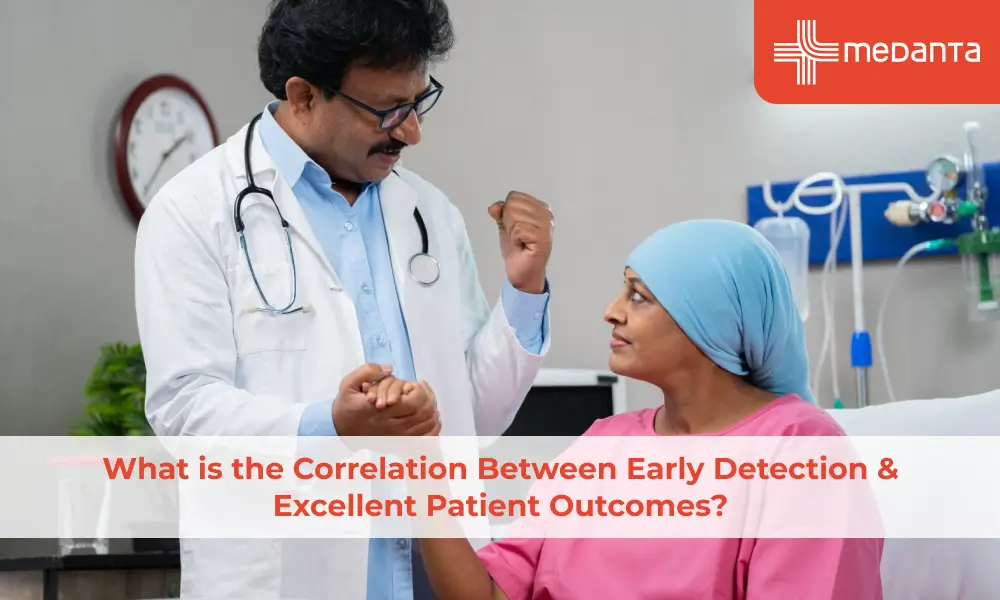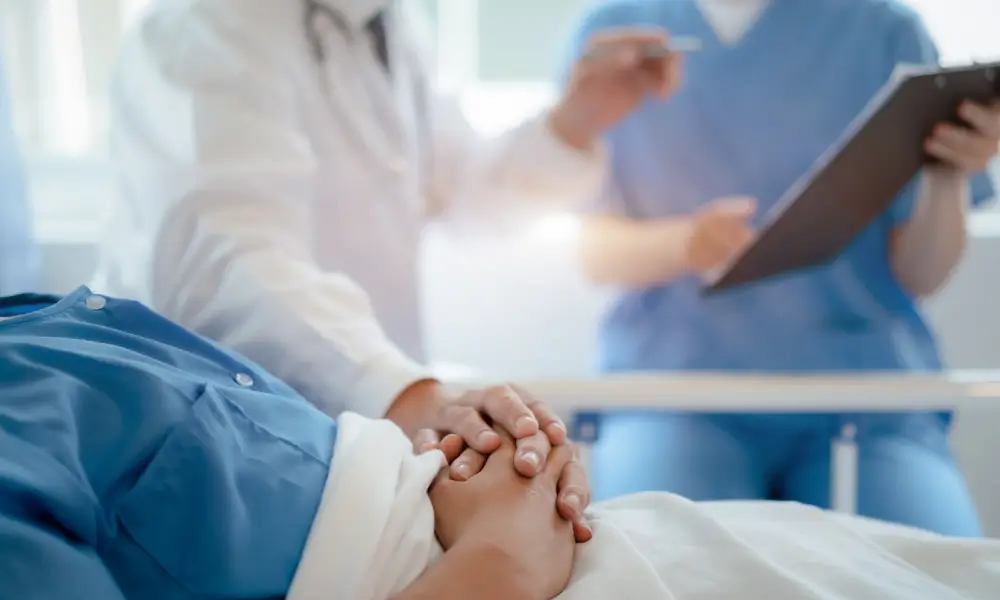What is the Correlation Between Early Detection & Excellent Patient Outcomes?

TABLE OF CONTENTS
Early cancer detection in patients is crucial, as it dramatically improves patient outcomes. In 2023, the USA has predicted there will be 1,958,310 new cancer cases and 609,820 deaths attributed to Cancer. These figures underscore the continuing necessity for effective prevention of cancer screening, treatment, and diagnosis.
Detecting Cancer at its early stage with advanced technologies such as screening tests, self-examinations, and other diagnostic tools has become increasingly possible. The earlier Cancer is detected, the more it's possible to apply better treatment options with the expectation of positive outcomes.
This blog will dig into the correlation between early detection and excellent patient outcomes in different cancer types.
What is early detection and why?
Early detection of cancer refers to the process of diagnosing cancer before it has spread to surrounding tissues or to distant organs. For positive and improved outcomes, it’s essential to detect cancer at its early stage.
Cancer is even curable when detected earlier. Early detection is also essential for reducing the burden of cancer, both in terms of treatment costs and mortality rates.
So, many different screening tests and diagnostic tools are available to help detect Cancer early. Cancer awareness can encourage people to go for regular screenings and self-examinations, increasing the chance of early detection and saving lives.
Types of Cancer that can be detected early
There are various types of cancer, which can occur in different parts of the body. Some of the shared cancer types include:
Breast cancer: This cancer affects breast tissue and can occur in both men women.
Lung Cancer: Lung cancer is seen as the leading cause of worldwide cancer deaths that are often caused by smoking.
Prostate cancer: This type of cancer occurs in the prostate gland in men
Colorectal Cancer: Colorectal Cancer occurs in the rectum and colon.
Skin Cancer: This cancer occurs when sking cells are damaged by the sun’s ultraviolet (UV) rays.
Early detection methods
Early detection of cancer is essential for increasing the chances of better treatment ans successful outcomes. Some of the early detection methods are:
Screening test: This method of testing is used to detect cancer cells in cancer patients before any symptoms occur, for example breast cancer, cervical cancer, colon cancer.
Self Examination: Breast and testicular cancer can be detected early by self examination.
Imaging test: Imaging tests, such as X-rays, CT Scans and MRIs, can be used to detect cancer in the body early before developing symptoms.
Genetic testing: This test can be used to determine if a person has inherited a gene that can be the cause of increasing the risk of developing certain types of cancer. Example- Breast cancer, ovary cancer, prostate cancer, etc.
It’s important to note that early cancer detection methods vary depending on the type of Cancer. For that, regular medical check-ups and cancer screenings are essential for detecting Cancer early.

How does early detection impact patient outcomes?
Early detection of cancer can have a positive impact on cancer patient’s outcomes. Here are some steps that can show how early detection can influence patient outcomes:
Improved survival rates: Cancer caught at an early stage is easy to treat and has a lower chance of spreading to other parts, which can increase the chance of survival.
More treatment options: When Cancer is caught early, more treatment options will be available for curing Cancer, including less invasive procedures and using less-aggressive treatments, which help minimize side effects.
Better quality of life: Early treatment and detection of cancer can help reduce the tumour’s size and minimize the damage it causes
Lower healthcare costs: Early detection leads to less expensive treatment.
Peace of mind: Peace of mind can prevail with early detection of cancer, as they are aware of the condition and the steps that should be taken.
Overall, early detection of cancer is vital for patients' positive outcomes. It can increase the chances of successful treatment, reduce healthcare costs, and improve a patient's quality of life.
Challenges and limitations of early detection
Some of the challenges and limitations of early detection include the following:
Lack of specific and sensitive screening tests: Many cancers do not have highly specific or sensitive cancer screening tests, which makes it difficult to detect cancer cells earlier. For example, mammograms for breast cancer have a relatively high false positive rate, which can lead to unnecessary follow-up testing.
Difficulty in detecting early-stage cancers: Some cancers persist for years and can be challenging to detect by current screening methods. This means early detection may not be possible for these types of cancers.
Limited access to screening programs: Screening programs are expensive and may not be covered by insurance plans which can limit access to screening tests for certain people.
Over diagnosis and overtreatment: Early detection can lead to over diagnosis and overtreatment of cancers that may have never been harmed. This can lead to unnecessary procedures and adverse side effects for patients.
Patient reluctance to participate in cancer screening: Some patients may feel nervous and hesitant to participate in cancer screening tests due to fear, cultural or language barriers, or lack of understanding.
Overall, while early detection of cancer has many potential benefits, it is essential to consider these challenges and limitations when developing and implementing screening programs.
Conclusion
Early cancer detection can improve patient survival and recovery by providing more treatments, reducing healthcare costs, and improving the patient’s quality of life.
High-risk individuals must undergo screening tests under guidance of an oncologist for early detection of cancer.






